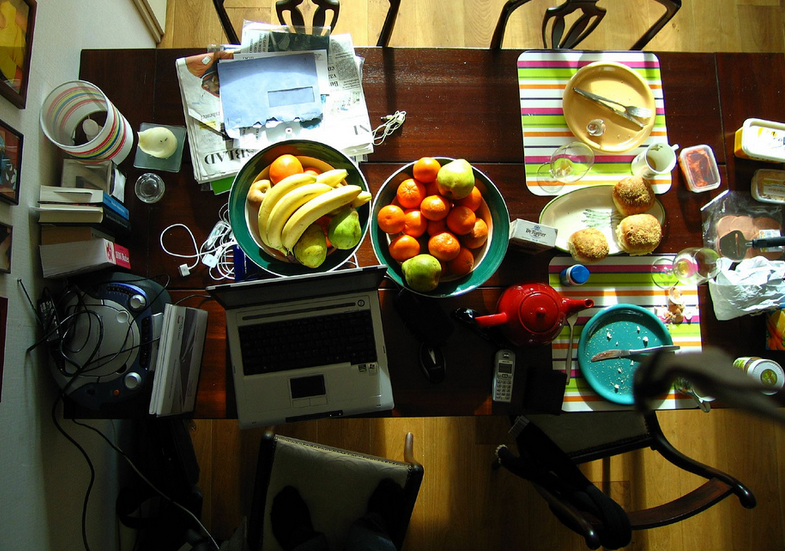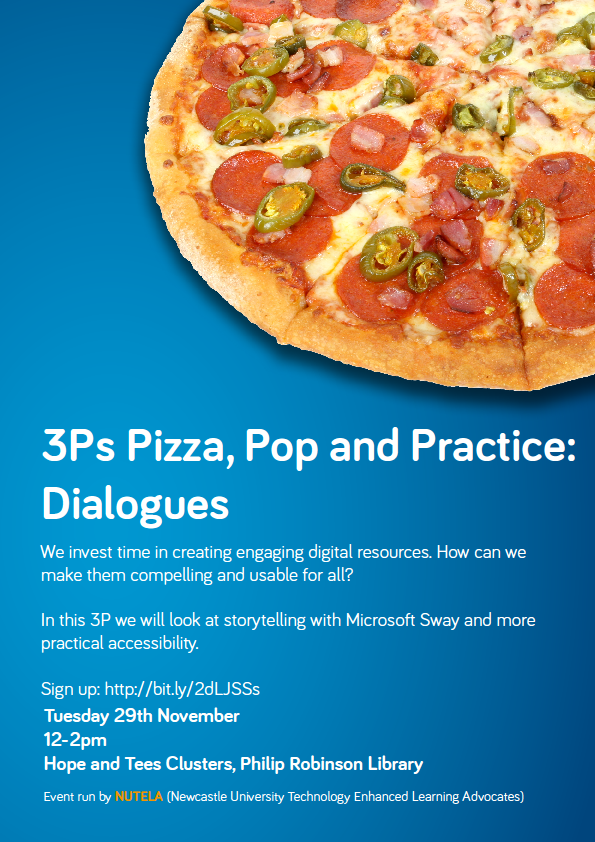Engagement Through Partnership – Abbi Flint
Abbi started her keynote discussing the framework that the Higher Education Academy launched regarding students as partners. Below are my rough notes from the presentation combined with Dr Rebecca Gill’s more comprehensible notes!
Fostering partnership – it’s a strong way to increase student engagement – growing topic recently.
What do we mean by partnership?
Definition(s) of partnership:
- Partnership isn’t interchangeable with student engagement, but is a specific form of it. It is a movement away from the assumption that students aren’t initially engaged, and emphasises shared responsibility of students and staff, students and staff as ‘co-learners’.
- Defined partnership as a process; the form of a project may not necessarily be one of partnership, but partnership is established for example by giving students autonomy and an active role in producing research, disseminating outputs and finding solutions.
- It is contextual (specific to institution, discipline and wider culture), therefore an ideal model is impossible to produce.
- Partnership can encompass cooperation between students as well as staff-student interactions. Embedding students within an academic community is central to student retention and success.
- Emphasis on understanding the expertise students can offer as pedagogic consultants in curriculum design: staff provide disciplinary expertise, students are experts on the curriculum as experienced in practice.
Specific form of student engagement – student engagement – is this a buzzword? So many different meanings when looking at the published research.
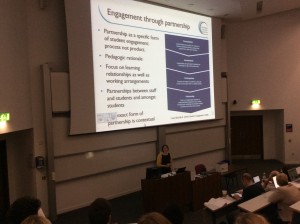
1. What does partnership with students mean to you?
2 why are you interested in partnership in teaching and learning?
Why are you interested in partnership in teaching and learning?
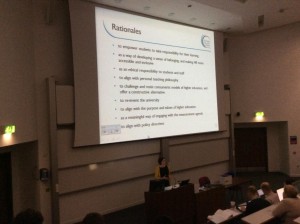
Pedagogically powerful approach – deeper learning, sense of community.
Behavioural perspective – something that they see and do. How often do students engage in study? A lot of research around this.
Psychological perspective – how are students engaging cognitively? What is their sense of community?
Social cultural – how does the culture of the institution affect student engagement?
Active participation is relevant across all perspectives.
Learning relationship as well as a working relationship. Students learning as part of the partnership.
Highly contextual – this is about people and their particular context.
Partnership values-
Authenticity, inclusivity, reciprocity, empowerment, trust, challenge, community, responsibility. (these are in HEA documentation)
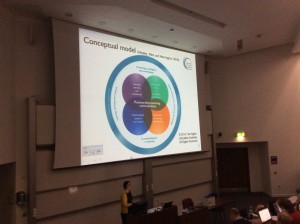
Examples
Learning and teaching assessment
Flipping the classroom
Personalisation of learning
Peer education
Active and collaborative learning
Broad vision (University of Westminster)
Subject based research and inquiry
Embedding research and inquiry based learning
Student as producer – University of Lincoln
Boutique UG research schemes
Think Ahead: SURE
These examples still need to be considered within the process. Examples above aren’t necessarily partnership, but the process needs to be considered.
Scholarship of teaching and learning
Students are often the focus rather than the partners of any research.
Institutional examples
University of Exeter – voluntary scheme where student research their teaching and learning environments and report outcomes to the staff student committee in their School. This has had high impact.
Curriculum design and pedagogic consultancy
Students often surveyed at the end of their course, but not often consulted at course design / approval stages.
This is one of the more challenging aspects of partnership. Often institutions/academics don’t want to give up any control in this area.
How do we embed partnership beyond the discrete activities that goes on?
Case studies:
Tensions/opportunities:
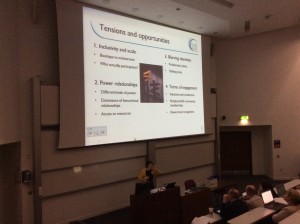
- Significant change to existing practice/processes needed.
- Inclusivity and scale: who is able to participate?
- Power relationships and blurring identities: dominance of hierarchical relationships, access to resources. Experience of partnership in one context may have a problematic impact on hierarchical relationships elsewhere. Partnerships can place staff and students in different roles.
- Reward & recognition: staff motivated by paid job role, what motivates students? Need opportunity to be full members of partnership – ensure access to larger agendas and history of projects (e.g. induction & ‘outduction’ of sabbatical officers) – students have a time limited engagement with their institution.
Areas for further exploration
- Pedagogies of partnership: disciplinary research – are there disciplinary approaches to partnership?
- Sharing lot of successes but need to learn from failures. Where does it not work and why?
- Impact: longer term, explore potential ways of using existing institutional data more smartly to look at impact of partnership on broader learning experience.
- Ethical implications of engagement through partnership.
- How different student demographics engage with partnership/levels of impact at different intersectionalities (e.g. gender, race, age).
Mick Healey website – case studies with students as change agents.
 We had a really productive meeting yesterday morning when the Lead Sheducator, Sheducators and Mentors met to familiarise themselves with The Enterprise Shed: Making Ideas Happen and how it will run when it starts next Monday on FutureLearn.
We had a really productive meeting yesterday morning when the Lead Sheducator, Sheducators and Mentors met to familiarise themselves with The Enterprise Shed: Making Ideas Happen and how it will run when it starts next Monday on FutureLearn.

